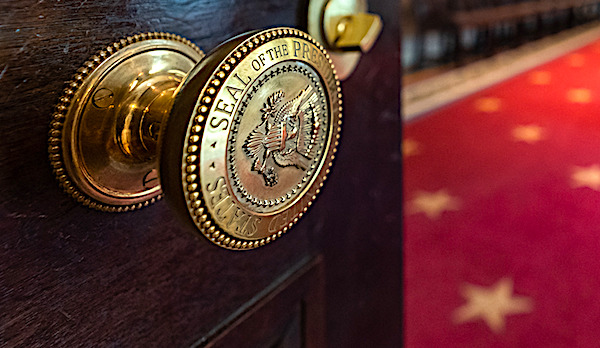
Calling it “probably the largest data breach in United States history,” Los Angeles County prosecutor Eric Neff said Chinese contractors working for a Michigan-based software company had direct control over U.S. election data through an app for poll workers called PollChief.
The prosecutor, describing the volume of data in the breach as “astounding,” was commenting on the criminal case against Eugene Yu, the CEO of Konnech, for allegedly storing Los Angeles election worker data on servers based in China.
The complaint issued by the L.A. District Attorney’s Office cited as evidence a message from a Konnech project manager through a Chinese-owned messaging app that said “any employee for Chinese contractors working on PollChief software had ‘superadministration’ privileges for all PollChief clients.”
Sam Faddis, former CIA officer, put that statement in perspective in a Substack post.
“An individual with super administration access to a system can do effectively anything inside that system,” he wrote. “He or she can delete data, steal data, alter data, change programming, etc.”
The security breach through the Konnech software was discovered by the election integrity group True the Vote. At an invitation-only event in the Phoenix area in August, True the Vote leaders Catherine Engelbrecht and Gregg Phillips disclosed that their team had notified the FBI, and the agents with whom they communicated were alarmed by the potential national security implications.
Later, however, after working together on a “counter-intelligence operation,” Engelbrecht and Phillips said the FBI turned against them, and they sought out independent researchers to assist.

(Pixabay)
One investigator, who attended the Arizona event, posting on his Kanekoa News Substack page, has identified Konnech’s Chinese subsidiary, Jinhua Yulian Network Technology.
Yu, who established the Chinese company in 2005, wrote on his website – according to an archived 2013 version – about his success with “Election Management Solutions Detroit” and “U.S. Overseas Voters.”
On the website, he praised the vision of the the Chinese Communist Party leader at the time, calling him “Comrade Jiang Zemin.”
As recently as 2018, Kanekoa News reported, Konnech’s Chinese subsidiary bid on Chinese government contracts to provide “electronic voting systems” to China’s National People’s Congress, the communist nation’s legislative body.
Konnech is also closely tied to another Chinese election software firm, Jinhua Hongzheng Technology, as evidenced by patent transfers, employee profiles and domain registrations.
Hongzheng Technology operates in more than 20 provinces across China in partnership with Chinese tech giants Lenovo, Huawei, China Telecom, China Unicom and China Mobile as the premier voting technology provider for the National People’s Congress.
The Federal Communications Commission, Kanekoa noted, has designated China Telecom, China Unicom, China Mobile and Huawei as “national security threats.”
True the Vote
In a statement on Yu’s arrest earlier this month, True the Vote said it was “honored to have played a small role in what must have been a wide ranging and complex investigation.”
“The organization is profoundly grateful to the Los Angeles District Attorney’s office for their thorough work and rapid action in this matter,” True the Vote said.
The non-profit – whose investigation of ballot trafficking was featured in the film “2000 Mules” – was sued last month by Konnech.
True the Vote said the lawsuit was an effort to try to silence the organization. Konnech obtained an ex-parte temporary restraining order in secret, True the Vote said, so the election integrity group would have no opportunity to contest it.
Yu’s arrest, Oct. 4, came one day after the New York Times published a story mocking True the Vote as “election deniers” for claiming Konnech was storing personal information about poll workers on servers in China, posing a serious security risk.
Alluding to the New York Times, among others, True the Vote said Konnech “was assisted by many reporters who unblinkingly accepted their now discredited claims as fact, and simply repeated them.”
“Election integrity should not be a partisan issue, nor should media try to suppress all conversation about it in a way that benefits one party,” said Engelbrecht.
“We will continue to report evidence of threats to our election process,” she continued, “and work with law enforcement to ensure our elections are a secure space for all American voters.”
Via Wnd
